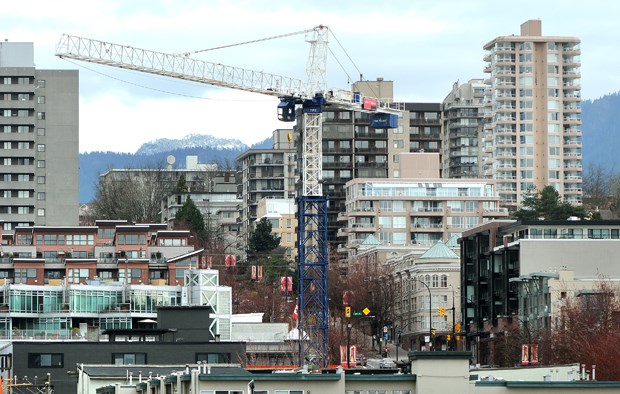Faced with large numbers of homeowners who have seen their property assessments jump significantly higher than average, North Vancouver mayors are calling on the province for more measures to help cash-strapped homeowners staring down large property tax bills.
City of North Vancouver Mayor Darrell Mussatto has suggested the province consider allowing municipalities to charge different tax rates for different types of residential property. That would allow local governments to charge a lower tax rate for single-family homes, for instance, than for condos and townhouses, and provide tax relief for some owners who have seen their assessments for detached homes jump more than 20 per cent in the past year.
“It’s controversial to say the least,” Mussatto acknowledged. But he said having one residential tax rate based on an “average” assessment is problematic when a large number of property owners don’t fit that average profile.
Due to skyrocketing assessments in the past year, which have seen detached homes across the North Shore shoot up between 15 and 25 per cent “there are some people who are paying significantly more taxes than last year,” said Mussatto.
While the city raised taxes about 3.9 per cent on an average assessment, those whose property value climbed at a faster rate will see a higher tax increase.
Mussatto argues having different tax rates for different types of residential properties wouldn’t be much different than the different tax rates that already exist for various types of business and industrial properties.
That’s part of a larger discussion about “who pays the tax and who’s benefitting from the tax,” he said.
District of North Vancouver Mayor Richard Walton agrees there is more the province could do to help asset-rich, cash-poor owners with their tax bills.
But Walton said he’s not sure charging a lower tax rate to single-family home owners is the right approach to take.
For one thing, some new condos on the North Shore are also selling for extraordinarily high prices, said Walton.
There’s also the potential of solving one problem and creating another one, he said. “You could be giving a tax break to quite a few wealthy people in expensive homes.”
Walton suggested a better idea might be putting a cap on property taxes paid by any one homeowner.
Walton said adding to the tax pain for many North Shore homeowners is the loss of their provincial homeowners grant – as many single-family homes are now worth more than the threshold at which the province cuts off the grant.
The threshold is the same throughout the province, said Walton, yet “the challenge right now is the spike in property values in the Metro Vancouver area.”
Walton said he is one of those taxpayers who lost the homeowners grant because of rising property values.
He suggested it would be fairer for the province to set different thresholds for the grant in different regions to reflect local assessments.
This year, the City of North Vancouver sent out notices with its property tax bills reminding homeowners of the provincial tax deferral program. The program is available to seniors 55 and over and also to families with dependent children aged 18 and under. It essentially involves the province paying property taxes to the municipality on behalf of the homeowner through a low-interest loan.
Mussatto said he hopes that anyone who qualifies and is having trouble paying their taxes consider the deferral program.
But he added the program should be available to all taxpayers – not just families and seniors.
“A good number of people who own single-family homes are unable to defer their property taxes,” he said.
Jennifer Clay, who bought her house in the Grand Boulevard area about 20 years ago, is among them. Clay bought her 1920s heritage house in 1995 for just more than $331,000. Today the house is worth more than $1.3 million – four times what she bought it for. It also doesn’t qualify for the homeowners grant.
“That is money in the province’s pocket that I think is unfair,” she said.
Clay’s property taxes have also jumped significantly – from just over $2,000 in 1995 to almost $7,400 this year.
Clay still works for a living and her salary “has not gone up four times,” she said. “It’s gone down.”
In an emailed press statement, Peter Fassbender, minister of community, sport and cultural development, said government is aware that assessments have “increased significantly in some areas of the province, particularly Metro Vancouver. We are also aware that not all assessments of residential properties in municipalities are increasing at the same percentages.”
Fassbender stated local governments have a number of tools they can use to help mitigate the impacts of dramatic assessment increases, including the ability to pass a bylaw “to average assessed values over a three-year period.”
That bylaw must be passed by March 31. So far, only the City of Vancouver has made use of that option.
Fassbender added seniors, veterans and people with disabilities may also be eligible for a low-income supplement if their property is above the threshold for the homeowner grant.



